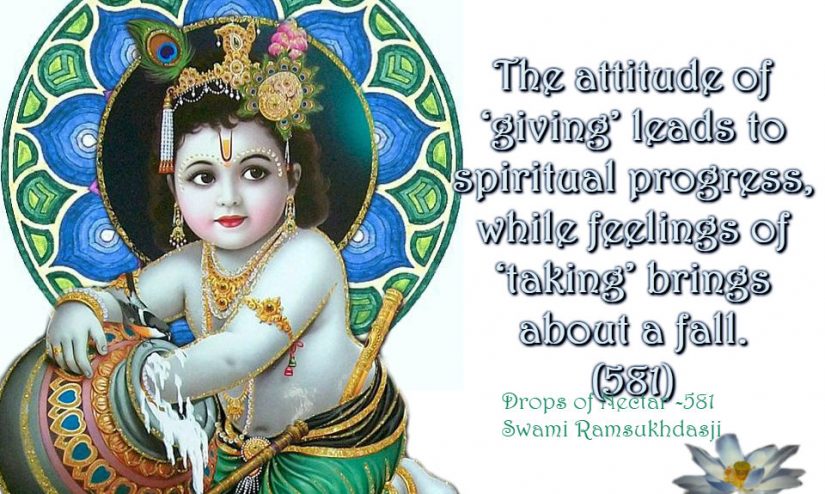Main point is that we must not desire that things happen according to our wishes. Even if we have the best of desires, then too, our mind-intellect are not so pure that they can discern what is best for our spiritual well-being. Therefore, let your desires, be aligned with God’s will. Let us do as per His will.
It is wrong to want God and Guru, abide in your way. Rather, we must see towards what their wish is and do accordingly. Dictating our terms and wants, assumes that God and Guru do not already know what is best for us. It does not mean not to say anything at all. Yes, like a child, you may say what comes in your mind, just to get it out of your system, and become free of all worries and fears. But do not say it with the intent of wanting your desires and wishes fulfilled. Rather, say is to lighten your heart and to get it out of your system. Just like a child tells whatever he feels to his “Maa”. He says it simply straight-forwardly ! It does not mean that you tell with the intent of asking for silly things. Have no reservations in telling, but at the same time do not ask for things. Do not keep any doubts within. The more the relationship is open, the more that we clarify the better it is. Gita 18:66 tells us this point. Why is it that only Arjuna received the knowledge from the Lord, when an entire army of 18 “akshonies” was present?.
Just like Eklavya, gained all the knowledge, because of his exclusivity “anayataah”. Exclusive faith, belief in his Guru’s grace, even though the Guru did not accept him as a disciple. He became a better archer than even Arjuna. So why is it so ? Was there something lacking in Arjuna’s feelings ? There may have been some pride in Arjuna’s own abilities and knowledge. Eklavya had only one feeling, that it was only by Guru’s grace by which he was able to learn the skill of archery.
In “adhyaatma” (knowledge about Truth), even if Guru is incapable, the student can gain immensely. God himself will make certain that the disciple gains the desired knowledge. Therefore let there not be “manushya buddhi” in Guru i.e. seeing “Guru” as a person. If our sentiments are that the Guru is the greatest of all, like God, then the responsibility will be on God to make certain we are not let down. Sethji (Shri Jayadayal Goyandka) says, that when an aspirant turns to to a saint, a mahatma, his duty is over. Let us therefore simply give ourselves (take refuge in the Lord). However he wishes to make us, let him do so. The potter molds the clay on the potter’s wheel, and turns it into a beautiful pot. The iron turns itself over to become steel. The aspirant does not have to worry or be concerned. It is the Guru’s responsibility. If the Guru is not proper, and the aspirant is sincere and has intense longing for the Truth, then God Himself will send the aspirant to someone else, or the Guru will become worthy of the aspirant. We do not have to have any doubts. When we begin to desire things of this world (bhoutik) things, then it is a problem.
Remain as humble as possible with your Guru. (This humility is the real dust of His Lotus Feet – “charano ki rajji”). Be aware of all that will make him happy! Even saying “shower your grace on me,” (kripa karo) is showing disrespect. Do according to His wishes. As such the Guru’s body is not the Guru. Simply pay attention to his teachings (vachans) and revere his words. Guru is knowledge (gyaan). If you do not listen due to your pride, you will fall. Do not be deceitful. God does not like craftiness. Be simple and straight forward in heart. There should be nothing lacking in your feelings. Blend your wishes ( `Yes’ Maharaj) with His Will (Uski Haa mein Haa milaa do) . Our aim (lakshya), our surrendering (sharanagati) are the main things. All will take place by His grace. Krishna is the Guru of all. “Krishnam vande jagat guru”.

Comments are closed.